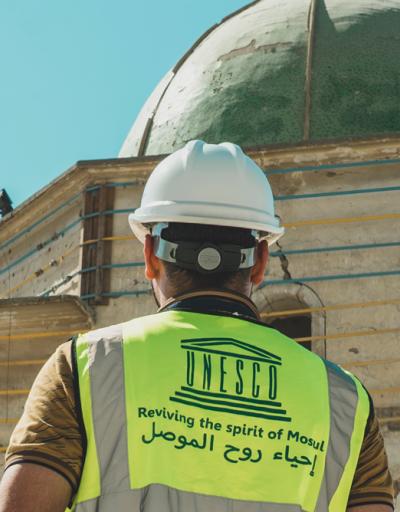Facts & Figures
Including 50,4M$ from the United Arab Emirates and 38.5M$ from the European Union
rehabilitated or in the process of rehabilitation
2,480-Al Tahera Church, 1,600-Al Saa’a Church & 5,860-Al Nouri Mosque and Al Hadba minaret
from Al Tahera Church, Al Saa’a Church, Al Nouri Mosque & Al Hadba minaret
cleaned and cataloged for the reconstruction of the Minaret
Including an unexploded bomb under the dome of the Al Nouri mosque
used to consolidate the structure of Al Nouri Mosque
through cultural and heritage awareness campaigns
in Preventing Violent Extremism through Education (PVE), supporting 50,000 students
Students and teachers very often suffered physical and/or psychological trauma
by UNESCO in Nineveh province, including Mosul
the Institute of Fine Arts in Mosul benefited from trainings at the Filmlab
Action spotlight: Donors of the Initiative
Canada, Croatia, France, Government of Flanders, Germany, Hungary, Italy, Japan, Lithuania, South Korea, Netherlands, Swedish International Development Cooperation Agency, and UNESCO’s Heritage Emergency Fund.


